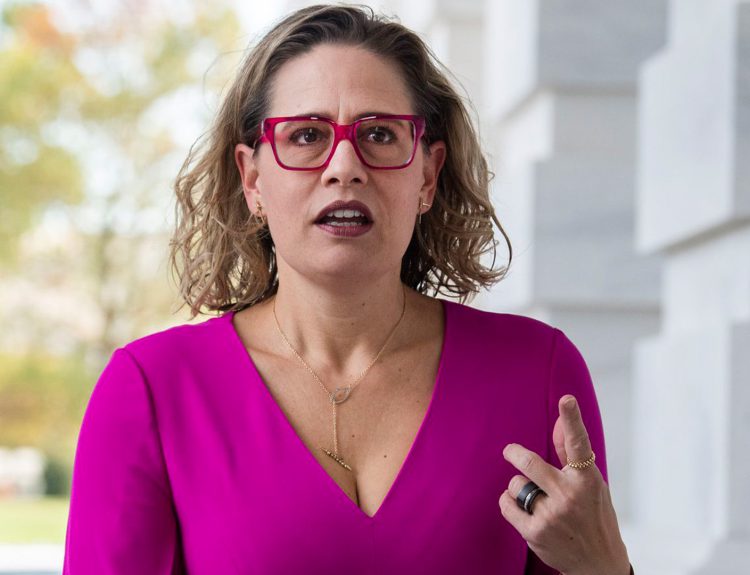The National Institutes of Health, a federal health agency, is facing criticism for a $241 million taxpayer-funded initiative that prioritizes the hiring of scientists based on diversity, equity, and inclusion (DEI) criteria instead of focusing on hiring the best candidates for the work.
Diversity Being The Top Consideration
The National Association of Scholars (NAS), a conservative organization, has assessed that the NIH’s Faculty Institutional Recruitment for Sustainable Transformation (FIRST) program prioritizes diversity over other considerations during the hiring process.

NIH’s FIRST program incentivizes universities to hire biomedical researchers under the label of ‘inclusive excellence.’
Prioritizing An “Ideological Agenda”
The NAS has accused the NIH of prioritizing an “ideological agenda” over quality research.

The nonprofit transparency watchdog group, Open the Books, has criticized the NIH for wasting taxpayers’ money.
DEI Has Been A Prominent Topic
In recent times, there has been a lot of news related to DEI (Diversity, Equity, and Inclusion).

This is especially because conservatives have been raising concerns about efforts to promote diversity and equity in various industries across the U.S.
DEI Focuses On Providing Opportunities to Underrepresented Groups
DEI initiatives aim to provide opportunities to underrepresented groups, such women or minority populations.

The idea is to enable these underrepresented groups to access more desirable jobs that they might otherwise struggle to attain due to college campus or workforce discrimination.
Criticism Against DEI
While DEI was intended to provide opportunities for individuals to excel in fields where they would otherwise face barriers, numerous critics have recently been opposing DEI initiatives.

Critics argue that in its effort to combat discrimination against minorities and women, DEI initiatives have been discriminating against straight white males.
The $241 Million Taxpayer-Funded Program
Currently, conservatives and NAS are accusing the NIH of implementing a $241 million taxpayer-funded program that prioritizes hiring scientists from minority backgrounds over selecting scientists based solely on their credentials and abilities.

Open the Books has reported that the NIH’s FIRST program is projected to cost $241 million over a span of nine years.
Awarding Grants To Colleges
Since 2021, the NIH has awarded grants to 16 colleges under the FIRST scheme. The most recent round of funding comprised four awards totaling $64 million.

According to a report released by Open the Books, recent recipients of the grants include Northwestern University ($16 million), the University of New Mexico ($15.6 million), and University of South Carolina ($13 million).
Ignoring Those Who Are Truly Excellent In Their Field Of Research
Some other universities that have received funding under the FIRST program include Cornell University, Tuskegee University, Florida State University, and the University of Alabama at Birmingham.

According to NAS fellow John Sailer, the FIRST program prioritizes scientists who give more importance to DEI than those who actually excel in neurobiology, genetics, computational biology, and other research fields.
Submitting ‘Diversity Statements’ Is Mandatory
Applicants are required to mandatorily submit ‘diversity statements along with their applications.’ Sailer, who has obtained college rubrics said that individuals who express their intentions of wanting to “treat everyone the same” irrespective of skin color are not favored.

On the other hand, individuals who incorporate DEI buzzwords like ‘equity’ and emphasize their commitment to racial justice are purportedly more likely to be favored.
“Statement On Contribution To Diversity” Carries Significant Weightage
Sailer highlighted the current recruitment practices at Cornell University, where college documents indicate that an applicant’s “statement on contribution to diversity” is meant to “receive significant weight in the evaluation.”

Sailer wrote in The Wall Street Journal, “The information reveals how the NIH enforces an ideological agenda.”
Irresponsible Promotion Of Less Qualified Candidates
Sailer also wrote that the NIH is “prompting universities and medical schools to vet potential biomedical scientists for wrongthink regarding diversity.”

He added that the NIH program and the universities involved are irresponsibly promoting less qualified candidates at the expense of quality scientific research.
Dangers Of Promoting A Political Ideology Over Excellence
Sailer stated, “In medical research, lives depend on putting excellence first. The NIH distorts that value, subordinating it to political ideology and endangering those it’s supposed to serve.”

The NIH website says that the agency is committed to maintaining high standards while also increasing representation of underrepresented groups in laboratories. According to the website, the goal of the project is to “impact inclusive excellence within research environments and ultimately diversify the biomedical research workforce.”
A Form Of Reverse Discrimination
For some people, DEI initiatives are necessary and important because they address issues like sexism and historical racism. These initiatives provide opportunities to individuals hailing from diverse backgrounds to succeed in schools, colleges, and workplaces.

However, critics argue that these initiatives represent a form of reverse discrimination that negatively impacts straight white males.
Critics Are Calling It A “Woke” Box-Ticking Exercise
DEI initiatives encounter a great deal of opposition from conservative legal advocacy groups, particularly those supported by taxpayers’ money.

Last month, the University of Florida terminated all its DEI positions while also closing down its diversity programs within the state’s publicly funded education system. This was done to comply with new state regulations. The Heritage Foundation has conducted nationwide research and reported that DEI staff now account for more than 3.4 positions for every 100 tenured professors. This trend has raised concerns about a rapidly growing DEI sector. Critics characterize this trend as a “woke” box-ticking exercise.






